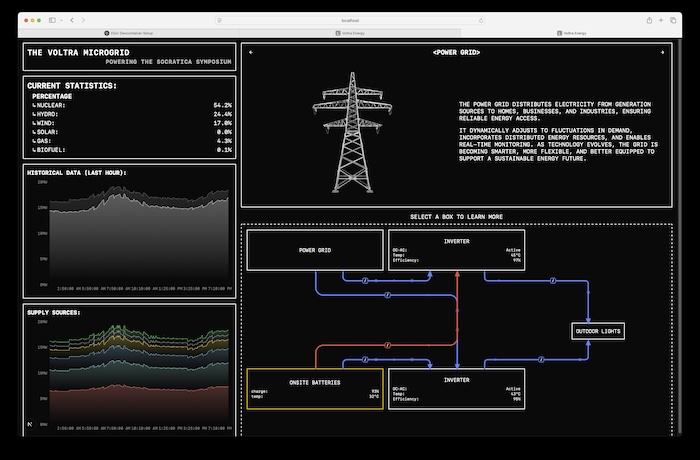University of Waterloo start-up has raised US$1.8 million in pre-seed funding; is launching a new bottom-up platform to ease EV charging

Voltra co-founders, Alexander Stratmoen and Aryan Afrouzi say their company fills a gap in the EV charging landscape. Image: Voltra
University of Waterloo start-up has raised US$1.8 million in pre-seed funding; is launching a new bottom-up platform to ease EV charging
Voltra is bringing a new EV charging platform to Canada, the company announced today at the 2025 EV Charging Expo.
“Charge” is the name given to Voltra’s solution to managing EV charging demand with grid stability and capacity. A single Application Programming Interface (API) platform, it is designed to coordinate EV chargers, batteries and microgrids.
“Most of the energy space is focused on top-down control and infrastructure buildout to modernize our grid,” says Voltra cofounder, Alexander Stratmoen. “We believe the intelligence layer has to be built from the bottom up.”
Voltra is able to bring Charge to the market thanks to US$1.8-million pre-seed funding led by Contrary Capital, with both Hanover Capital and Velocity Fund participating.
The company originally launched as part of the University of Waterloo’s Velocity Incubator.
Who will use Charge?
“Previously, for a fleet software company, working with EV infrastructure directly would be unmanageable,” says Stratmoen.
“The space is filled with complex middleware and unsustainable EV-specific business models.”
Charge looks to fill a major market gap by providing a single platform to software developers working in the EV charging space. It is suited to commercial EV fleet operators, condo property owners/managers and microgrid integrators.

The aim of the new product is to manage grid demand in a way that avoids large central infrastructure builds. Instead, the approach supports development of distributed energy resources (DERs) to break load and supply into small modular pieces.
Voltra also says Charge can be used by any map application to route plan EV charger access using real-time grid data.
“An EV fleet should be using existing fleet management software; a condo building should be controlling chargers from their existing apps,” says Voltra CTO, Aryan Afrouzi. “We don’t need more EV-specific applications on a driver’s phone. What we’ve started with EV chargers will expand to energy storage, industrial controls, and eventually the wider distribution system.”
For more information on Voltra, follow Electric Autonomy‘s coverage of the 2025 EV & Charging Expo.






